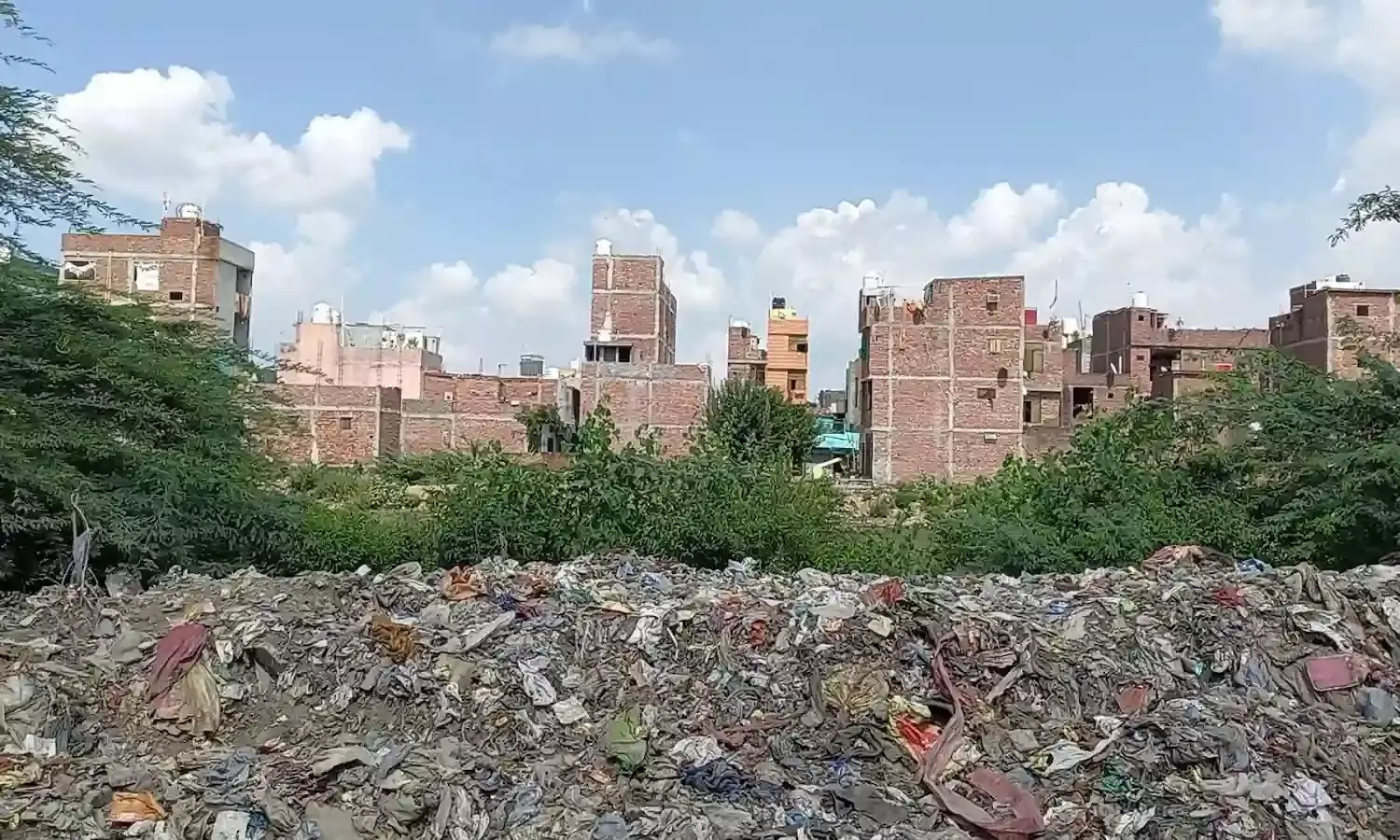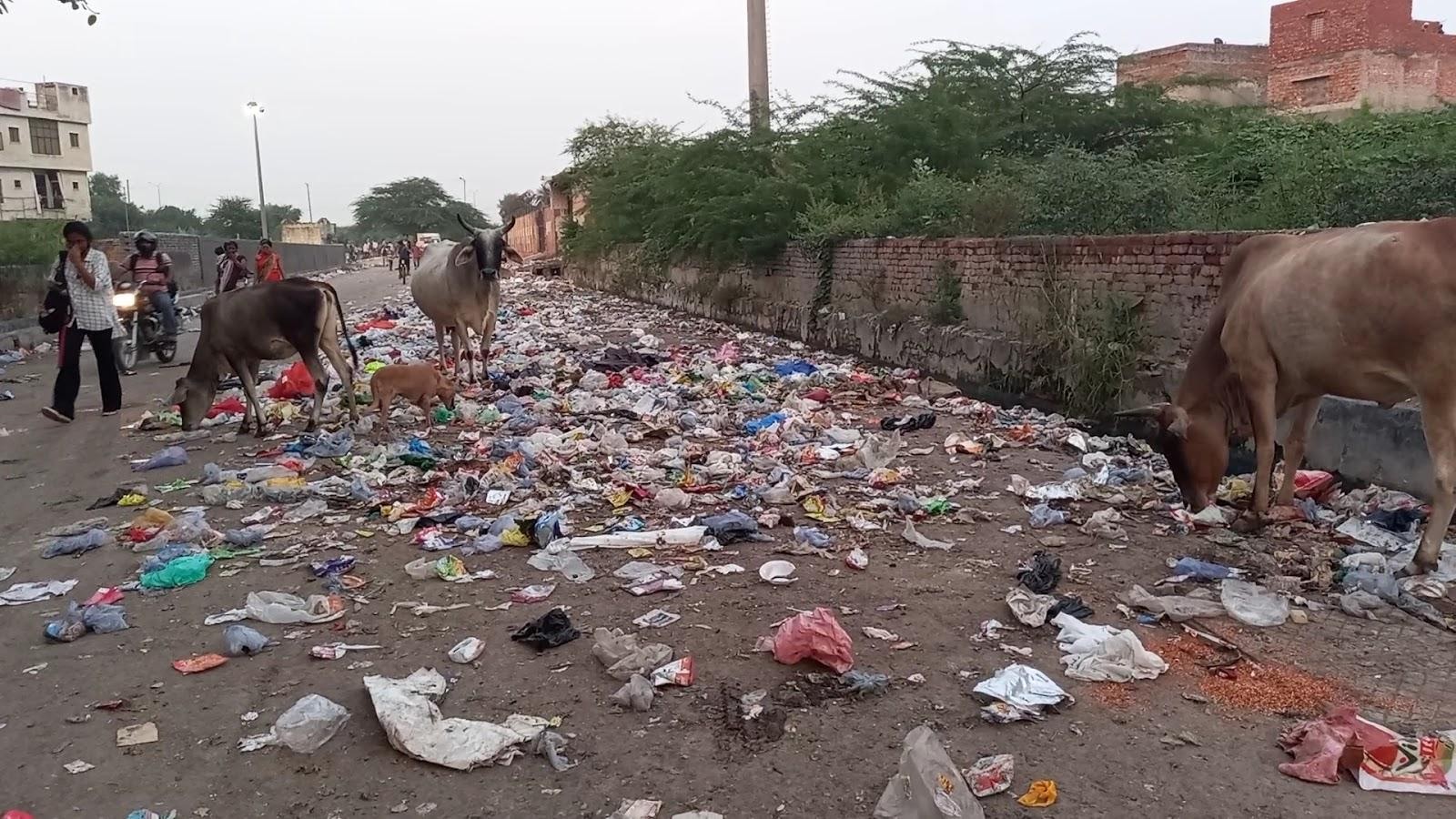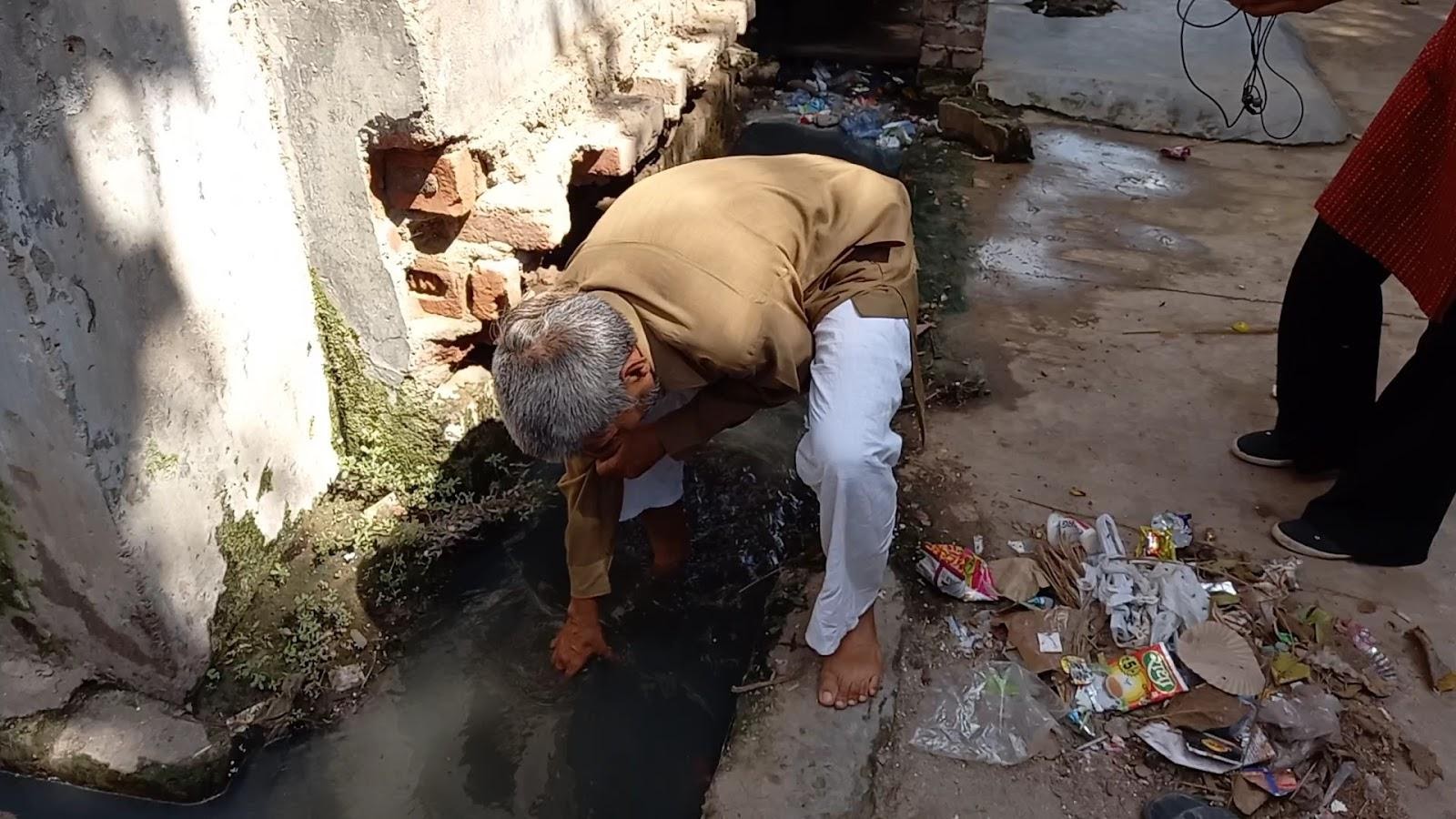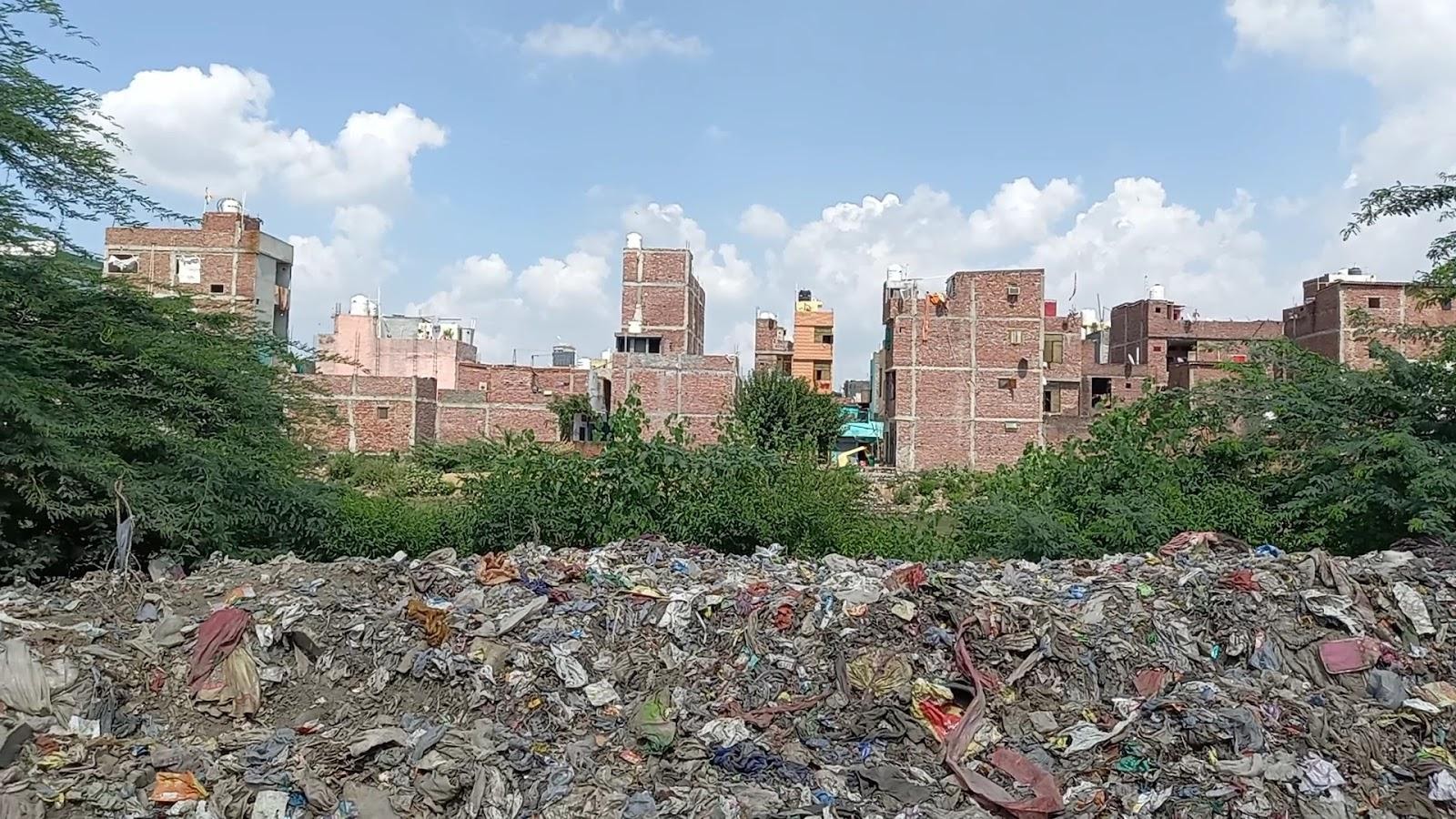‘We Will Never See the Face of a Developed Future for Ourselves’
Governments deny sanitation services to people of Madanpur Khadar

“The management of trash - or the lack thereof - is a hazard to our colony,” says Nagina Begum, pointing to the garbage dump in front of her home.
This is an area of Delhi where garbage accumulates for days with no one to dispose of it. The public parks built here have become a dumping ground. On the outskirts of the capital city, the JJ colony of Madanpur Khadar is drowning in garbage.
While the Municipal Corporation of Delhi is responsible for managing garbage collection and disposal across most of the capital city, for much of these services the MCD issues tenders of public money to private businesses.
In Madanpur Khadar the denial of disposal services has led to a crisis. From streets to public parks, the trash and stench are all pervasive.
Government officials relocated the colony’s residents here from their shanty homes across Delhi back in 1999. Since then, residents say, their living conditions have gotten worse.
They paid Rs 5,000 for the land and the promises made to them, says block leader SK Shukla. “We used to get water from the Kalkaji temple when we lived in shanties. There were public washrooms and open spaces for our kids to access” then.
“Now, since we have been relocated, we have only managed to get a roof over our heads without any compensation. Not a penny from the government to resettle. The government only allotted us land and promised us water supply, sewage pipelines..”
“Our children cannot go to the parks and play,” adds Nagina Begum, “we are unable to take a stroll in the street, especially with the stench that’s all consuming.. The government should look into it. Do our children not deserve a playground?”

A street leading up to the park
According to Suresh, another resident, even the public school in the locality is surrounded by a growing dumping ground. “Why should we send our kids to school in these circumstances? They will fall ill.”
While the school is run by the Delhi government and garbage disposal is managed by the SDMC, people here are facing neglect from all government agencies. They are worried by the unsanitary conditions.
“New Delhi and adjacent states have also reported several cases of dengue. In these conditions, how does the MCD not take cognizance of the situation?” asks local resident Jagdish.
Residents also point to the lack of sewage facilities in the area, which often leads to sewage mixing with the trash. “We rework the streets so they are elevated with respect to the drains in order to avoid the flooding during the rain, but there is no sewage line. This will not resolve the underlying issue of lack of garbage disposal. We elevate the streets but the main street remains flooded,” explained Suresh Kumar.
“Come every election season,” he added, “the locals are promised by political leaders that they will be provided with basic amenities, from garbage management to sewage lines and water supply.” But “no matter which party forms the government in Delhi or the Centre, we will never reap the benefits.”
People here say they have had to invest their own money to get rid of the trash accumulating in the parks and colony. But most residents of the locality are daily-wage earning labourers and domestic workers, and they cannot afford to spend more of their money to clean up the streets. They ask why the government is not discharging its responsibility.

Jagdish, a resident, walks into the drain to show clogging
Article 21 of the Constitution entitles everyone in India to a life of dignity, but the people of Madanpur Khadar in the national capital are still being denied access to essential amenities, putting their health and livelihood at risk.
Their situation can be summed up in Jagdish’s poignant declaration, “We are like pigs. We will never see the face of a developed future for ourselves.”

The public park riddled with garbage



